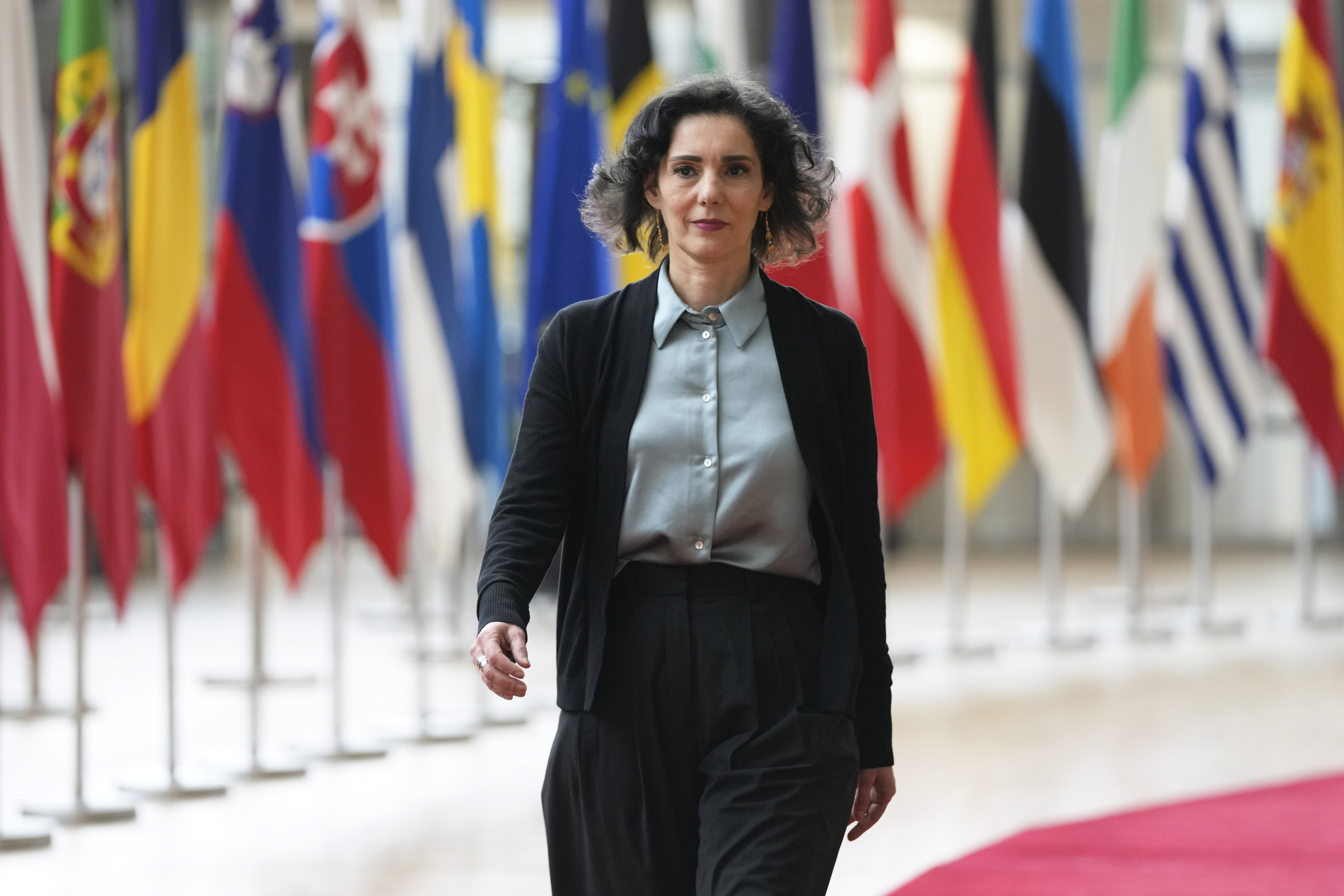Hadja Lahbib (Boussu, Belgium, 1970) is the European Commissioner for Crisis Management, Preparedness, and Gender Equality, and gained special relevance a little over a month ago after presenting the EU's 72-hour survival kit. Not only for its content but also for the tone used to introduce it. Many European citizens, including Spaniards, initially viewed this tool from the European Commission with skepticism and distance, but the blackout Spain experienced last Monday highlighted its importance. The liberal commissioner, who was a news presenter and reporter for the Belgian Radio Television of the French Community (RTBF) before entering politics, emphasizes this in an interview with EL MUNDO.
Question. What lessons should Spain and its citizens draw from last Monday's major blackout in terms of crisis preparedness?
Answer. This blackout is the most severe in almost two decades in Europe. It is a specific example among many possible threats. Beyond our power plants, we also face threats to our phones, computers, banks, supply chains, raw materials, and even the media we consume. This includes natural disasters such as floods, wildfires, earthquakes, or energy shortages after a storm. These events are becoming more frequent and unpredictable. They can overwhelm emergency services in the early hours. This means we must be prepared to respond to these risks and threats because only by being prepared can we avoid panic and help the most vulnerable, who are often forgotten in times of crisis.
Q. In Spain, the 72-hour kit you presented probably did not receive the attention it deserves. Do you think this will make the population more aware of the need to adopt this measure?
A. Being prepared to survive for 72 hours in times of crisis is just one part of a broader and comprehensive preparedness strategy. The idea is to encourage citizens to prepare for the first 72 hours of a crisis. This fills a critical gap, giving response teams time to mobilize and prioritize the most urgent needs. This example in Spain and Portugal shows the real importance of being ready and prepared for anything, at any time. Being prepared is not an abstract concept! It is not about war or alarming the population. On the contrary, when we are prepared, we have peace of mind. We feel safer. That's why we have just launched our new EU Preparedness Strategy.
"This blackout highlighted the relevance of our EU preparedness strategy, as citizens rushed to ATMs and stores to buy water and supplies while struggling to understand what was happening amid fake news," Lahbib continues, emphasizing a vital issue in crisis management: communication. In fact, in Spain, there has been harsh criticism of the lack of explanations from the Prime Minister, Pedro Sánchez, during the early hours of the crisis, and when he did address the public, he did not provide the necessary information. Furthermore, he avoided ruling out any scenario, including a possible cyberattack, while the European Commission in Brussels had already stated that there was "nothing" indicating a "boycott." This was confirmed the next day by Red Eléctrica.
In the EU capital, a supposed EU document circulated during the early hours claiming that the blackout was due to a cyberattack, and the involvement of Russia was also speculated. The Commission quickly denied all of this, but there was undoubtedly an attempt at disinformation surrounding the major blackout with the aim of destabilization.
Q. What is the importance of good communication in crisis situations like the one Spain experienced?
A. Clear and inclusive communication is essential, both before a crisis to inform the population about risks and during the crisis to guide them through it. In times of crisis, people need timely, accessible, and reliable information. It is especially important to ensure that no one is left behind, including the most vulnerable groups, who are often overlooked in emergency situations. We have seen in Spain how misinformation can spread rapidly. Clear and timely communication as part of an overall preparedness strategy can help prevent this. When people are well-informed and feel secure, they are much less likely to fall for false information.
Lahbib further points out that "the EU's Preparedness Strategy aims to support Member States in providing timely and accurate crisis communication." "For example, the Commission will develop programs and awareness campaigns for this purpose. It will facilitate the exchange of best practices among Member States. National Civil Protection authorities will also have the option to use Galileo to send alert messages directly to the population," she adds, referring to the satellite navigation system developed by the European Space Agency.
Before concluding, Lahbib returns to the survival kit, emphasizing the need for each country to adapt it to its needs, and underscores the importance of the populations of Spain and Portugal being prepared for the next crisis. "We must also pay special attention to the most vulnerable in our society: it could be our mother, our brother, our children, an elderly neighbor, or a person with disabilities. Part of being prepared is, for example, knowing your neighbor so that if this person is vulnerable or has a disability, you think of them. Each survival kit must be tailored to the specific needs of each individual and each country. There is no universal solution. And what the Spanish and Portuguese people must do is simply consider that this could happen again, and that next time they will be calmer because they will be better prepared. It's a matter of mindset," she concludes.
